
New models of poetry community, Prof Peter Middleton
October 23, 2013
by Laurence Georgin
 Poets have always tended to form communities, and since the early twentieth-century this has become the norm. The absence of market value for this art-form means that poets can often only survive through the mutual support of each other as readers, editors and publishers. Between the mid-1940s and the 1970s, two largely independent groups of mostly gay male poets in New York and San Francisco began to develop a poetics based around their experience of community. Their subject matter and their poetic forms were shaped by intense self-questioning about what it meant to be part of a community based around experiences of dissident sexual identity. Read more…
Poets have always tended to form communities, and since the early twentieth-century this has become the norm. The absence of market value for this art-form means that poets can often only survive through the mutual support of each other as readers, editors and publishers. Between the mid-1940s and the 1970s, two largely independent groups of mostly gay male poets in New York and San Francisco began to develop a poetics based around their experience of community. Their subject matter and their poetic forms were shaped by intense self-questioning about what it meant to be part of a community based around experiences of dissident sexual identity. Read more…
Southampton Stonewall Lecture 2014: Creating Our History, Celebrating Our Present: On the Entanglements of Queer Memory and History
October 3, 2013
by Laurence Georgin
Part of Lesbian, Gay, Bisexual and Transgender History Month
The Southampton Stonewall Lecture speaker in 2014 is Professor Laura Doan from the University of Manchester. 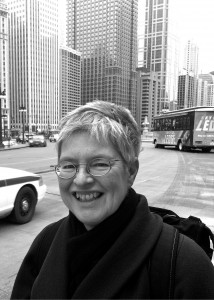
LGBT History Month seeks to claim our history, celebrate our past and create our future – a project not wholly dissimilar from all history-making practices organized around modern categories of identity. In this lecture I want to think about the workings of memory and history in relation to homosexuality. By scrutinizing the political impulses that produce gay icons such as Alan Turing, I am interested in figuring out what LGBT and queer history is good for.
Be My Lennon: Writing LGBT Bournemouth and The Beatles
September 30, 2013
by Laurence Georgin
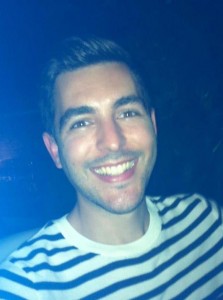 On February 25th 2012, a special reading event was held at Bournemouth Central Library, the culmination and celebration of a three-month writing residency within Bournemouth’s LGBT community. It was a moving and inspiring evening that saw thirty new writers read out their work to a large audience. The residency was organized by Lit Up!, the literature development agency for Bournemouth and Poole, and funded by the Arts Council and the National Lottery. Part of Lit Up!’s two-year remit was to deliver two ‘community-based residences’ and the project manager, Amy Mason, says that ‘it seemed like the perfect opportunity to work with Bournemouth’s thriving LGBT population, who had previously not been engaged with the arts development service’. My role was as a prose writer assisting the poet in residence, Andrew McMillan, in the facilitation of creative writing workshops based in the heart of the community at The NHS Over The Rainbow charity.
On February 25th 2012, a special reading event was held at Bournemouth Central Library, the culmination and celebration of a three-month writing residency within Bournemouth’s LGBT community. It was a moving and inspiring evening that saw thirty new writers read out their work to a large audience. The residency was organized by Lit Up!, the literature development agency for Bournemouth and Poole, and funded by the Arts Council and the National Lottery. Part of Lit Up!’s two-year remit was to deliver two ‘community-based residences’ and the project manager, Amy Mason, says that ‘it seemed like the perfect opportunity to work with Bournemouth’s thriving LGBT population, who had previously not been engaged with the arts development service’. My role was as a prose writer assisting the poet in residence, Andrew McMillan, in the facilitation of creative writing workshops based in the heart of the community at The NHS Over The Rainbow charity.
Andrew writes that ‘Working on the LGBT residency in Bournemouth and Poole was a transformative experience for me, as a facilitator and as a writer. I’d never considered myself a “gay writer” just someone who was writing and who happened to be gay and so if I wrote an autobiographical love poem, it would be addressed to another man. My aim with this residency was to go in and not make it a single issue residency, so not to say, we’re going to make you write about being gay, or we’re going to make you write about the one thing that makes you a minority in wider society. Actually what I wanted to do was just write and get them to consider the things which come up in community-space workshops, parental love and loss, politics, identity – I wanted them to feel free to express themselves however they wanted.’
From the outset, our brief was clear: to capture, in writing, the voice of the groups who identify themselves with, or as part of, an evolving modern LGBT community, whether that be through writing about life stories and identities independent of LGBT themes, as Andrew suggests above, or through writing about being a part of this community. Our task was to engage with all the different groups that regularly use the Over The Rainbow centre and by the celebration event we had held workshops for mental health, youth, elderly, trans, and women’s groups, amongst others. The workshops themselves consisted of both group-led or 1:1 writing-focussed exercises and discussions designed to inspire emerging writers. These exercises explored writing about home and place, about using memories as stimuli for writing identity and selves, about recounting life stories in imaginative ways. I think it’s fair to say that both Andrew and I, through previous community-centred residencies in the past, had seen the power of writing on many levels: whether as escapism, to create worlds in order to forget about the day to day trials of life, or as a cathartic process, to put down and work through emotions on paper, or, even, writing as celebration, of finding the joy and humour in life, even if that life is surrounded by difficult circumstances. In whatever ways the workshop participants chose to engage with the exercises we introduced, and even if they left with nothing else from the experience, we wanted them to leave with one feeling: that their voice mattered and was important enough to be put down in writing, a subtle form of empowerment.

It became clear over the course of delivering these workshops and meeting with these groups, however, that the residency should be so much more than capturing a voice. This was no longer about a voice, singular, reading and writing alone, recording their story like a writer locked away in a study. The workshops became a dialogue, a conversation on many textual levels. The writers we worked with entered into conversation with each other, not just those of the same group whom they already knew and felt comfortable with, but with other groups using the charity they might perhaps never have met before. On one occasion, we introduced the youth groups to the elderly groups, for example, who didn’t know the other existed and were using the same centre but who found, through telling each other their stories, they could learn from each other, initiating a dialogue between past and present aspects of the LGBT community. On other levels, the writers began conversing, through writing, with past selves, exploring and communicating with their memories in order to address their lives and identities in the present. During February’s celebration event, representatives from each of the groups we worked with took turns in sharing their own work or, if they didn’t feel confident with public reading, could have their work displayed for others to read at their leisure. And afterwards the buzz and excitement of having shared these stories was fantastic to watch. Andrew writes that he was surprised by how many of the participants wanted to write about LGBT themes. He says that ‘We tend, I think, as people, to identify with whatever it is we feel makes us a minority in relation to our peers – writing can be a great outlet for this identification but it can also be a way of turning ourselves outwards, of looking at other experiences and other ideas, working through a cross-section of ages, backgrounds and identities’. What emerged during the reading celebration was not a single story told many times over but, rather, differing patterns of experience, not a singular experience of LGBT life but experiences, plural. And this, I believe, is a central aspect of an evolving LGBT community. In order to continue evolving, growing, thriving, the community needs to recognise and listen to the voices of the individuals, to see that everybody has their own story to tell. To learn from the stories, we need to listen to them. The diverse range of individuals we met came from all walks of life and had their own reasons for attending the workshops. Many had never written before but all of them were open to the workshops and the writing techniques we explored. What Andrew and I were able to do, I hope, was provide these individuals with the tools to represent themselves, to find their own expressions of voice through writing.
The fact that there is funding out there for these types of projects is telling. It is sending the message that the LGBT community is an important part of other local and national communities. The legacy of the residency is, I believe, a positive one. Over the course of the three months, five hundred individuals engaged with the residency and since its culmination, Andrew and I have been asked back to lead further workshops within the community. Writing groups regularly meet and share their work, telling their stories. Even though directly based on Bournemouth’s gay cultural centre, the Triangle, the library admitted that they hadn’t been involved in any of the LGBT community projects and that it was an area of their outreach that had, somehow, been missed but has since hosted local LGBT writer’s evenings, portrait exhibitions and stories celebrating Trans Awareness Week, and will also be involved with this year’s Pride Festival.
Another aspect of my role was in the writing of a short story, Be Me Lennon, based upon my time at the residency. Its commission brief was fairly open, as long as the story featured Bournemouth and tackled an aspect of LGBT life. Be My Lennon was partly inspired by an exhibition that had been on at the library a month before the residency began, charting Bournemouth’s unique relationship with The Beatles. It was a series of wonderful photographs collated for Nick Churchill’s book, Yeah Yeah Yeah: The Beatles and Bournemouth. From this book and exhibition I learned about a fascinating aspect of Bournemouth’s cultural and musical heritage. Bournemouth can claim that The Beatles performed more shows there than any other city, outside of London. They performed at the Gaumont theatre and in the Winter Gardens, televised for an American audience and the catalyst for their rise to global fame. John Lennon bought his Aunt Mimi a home in nearby Sandbanks. Two of their album covers were photographed in Bournemouth. All these facts highlighted Bournemouth’s long-standing relationship with one of the biggest musical acts of all time, something I wanted to explore in my story. In staging the first part of my story in this period of Bournemouth’s past, I also wanted to comment on Bournemouth’s present and so my story follows episodes in the life of a character, Bob, from the sixties to the present day, mirroring some of the conversations that took place between the youth and elderly groups when they met. I also wanted to explore aspects of ‘the unspoken’, silences, as often the things that are not said are more powerful and telling than the things that are.
James Cole
A recording of Be My Lennon can be found at www.soundcloud.com/jamesolivercole
You can find out more about me and my writing at www.jamesolivercole.co.uk
Call for proposals: edited volume on gender in 20th-century eastern Europe and the former USSR
September 24, 2013
by Laurence Georgin
Call for papers, edited volume
Gender in Twentieth-Century Eastern Europe and the Soviet Union
Edited by Catherine Baker
This call for papers seeks contributors to an edited volume (c. 80,000 words) on the gendered histories of eastern Europe and the former Soviet Union during the twentieth century, aimed primarily at an undergraduate/taught postgraduate readership. Drawing on current research into a broad range of societies and experiences within the scope of the volume, it aims to explore whether or how far the course of the twentieth century has made it possible to speak of a common history of gender in this part of the world. Since the early 1900s, the region has witnessed the collapse of multinational empires into nation-states; the human devastation and divided legacies left by the Second World War and the Holocaust; the transformation of society and the economy under Communist power, and the divided legacies that this too has left behind; the break-up of the Warsaw Pact bloc and the remaining federations into nation-states that were to be remade in the image of a democratic, free-market ideal. Yet these grand narratives of transformation and transition risk obscuring divergences and specificities that historians of gender may also need to take into account.
Contributions may focus on one country or may have a broader comparative scope, but all proposals should indicate how the material can contribute to an understanding of the region as a whole. The coverage of the volume will be balanced across the time frame of the twentieth century and the region under consideration. Proposals are welcome regarding any part of the east European region or the former USSR. A major UK publisher has expressed interest in publishing the volume as a paperback, subject to successful completion of their review process.
Aspects that might be discussed within essays include, but are not limited to:
- Borderlands and the question of ‘national indifference’
- Childhood and youth
- The Communist revolutions and takeovers
- Communist parties in power
- Consumption, the home and everyday life under state socialism
- Feminism and other activist movements
- Interactions between the region and the rest of the world, including the Global South
- Labour, postsocialism and neoliberalism
- Oral history and memory
- Popular culture and the media
- Refugees and humanitarian relief
- Reproductive and sexual politics
- Queer and trans* histories
- Security and surveillance
- Socialist approaches to gender in theory and practice
- War and the military, including female participation on the front line
- War memory and commemoration
- Intersections of gender with other power relationships
Please send an abstract of 300–500 words to Catherine Baker (University of Hull) atcbakertw1@googlemail.com by Sunday 13 October 2013. Proposals will be reviewed immediately and notification will be made by the end of October 2013. Draft papers are likely to be due in July 2014. As part of preparing the book I hope to organise related conference panels e.g. at ASEEES in November 2014, although being able to attend a conference is not a requirement for taking part.
Catherine Baker
Queer Now and Then seminar series, University of Manchester
September 19, 2013
by Laurence Georgin
 The Centre for the Study of Sexuality and Culture (CSSC), The University of Manchester
The Centre for the Study of Sexuality and Culture (CSSC), The University of Manchester
Public Events 2013-4 – All Welcome
Organised by Professor Laura Doan, this set of events welcomes a number of scholars to explore queerness in relation to time and history.
Wednesday 16 October, 5pm (Venue TBC) (co-sponsored with EAC) Susan Lanser, Brandeis University ‘How to Do the Sexuality of History’
Tuesday 19 November, 5pm (Venue TBC)
Jackie Stacey, University of Manchester (EAC) ‘Embodying Queer Temporalities: The Future Perfect of Peggy Shaw’s Butch Noir’
Tuesday 10 December, 5pm (Venue TBC)
Hal Gladfelder, David Matthews and Kaye Mitchell, University of Manchester (EAC) ‘Porn Now and Then: A ROUNDTABLE’
Further details on the scheduled events, including confirmed venues, will be released in the near future: see http://queerculturenetwork.wordpress.com/ and http://sexualitysummerschool.wordpress.com/
3rd Year Module: Philosophy of Sex
August 23, 2013
by Laurence Georgin
 Philosophy of Sex is a third year module open to both philosophy and non-philosophy students exploring some major philosophical questions related to sex. We begin by considering the ethics of sexual behaviour, discussing issues such as monogamy, prostitution and rape. In the second half of the module, we look at a range of general theories about the nature of sex including the traditional view of sex as essentially connected to reproduction and “plain sex” theories that emphasise sexual pleasure. Read more …
Philosophy of Sex is a third year module open to both philosophy and non-philosophy students exploring some major philosophical questions related to sex. We begin by considering the ethics of sexual behaviour, discussing issues such as monogamy, prostitution and rape. In the second half of the module, we look at a range of general theories about the nature of sex including the traditional view of sex as essentially connected to reproduction and “plain sex” theories that emphasise sexual pleasure. Read more …
Major new work on Czech homosexuality
August 16, 2013
by Laurence Georgin
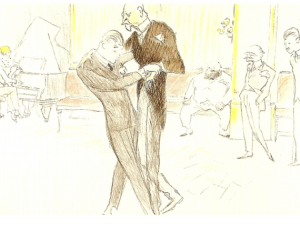 A major new work on homosexuality in the Czech lands has just been published in Prague by Argo press. The title, which can be translated as ‘Homosexuality in the History and Society of the Czech Lands: I Love Those of My Own Sex‘, completes a trilogy of books which have recently appeared on modern Czech homosexuality and which set out in a range of academic articles the culture and historical context of queers in central Europe. This particular volume concentrates on historical development from the 18th century through to the years of communist Czechoslovakia. It is especially important in breaking through the (usual) focus of such historical studies employing only American or western European examples, and sets out a new basis for research on the history of homosexuality in East-Central Europe. The volume includes a chapter by Mark Cornwall (Southampton) about homosexuality among the nationalist Sudeten Germans in the first half of the 20th century.
A major new work on homosexuality in the Czech lands has just been published in Prague by Argo press. The title, which can be translated as ‘Homosexuality in the History and Society of the Czech Lands: I Love Those of My Own Sex‘, completes a trilogy of books which have recently appeared on modern Czech homosexuality and which set out in a range of academic articles the culture and historical context of queers in central Europe. This particular volume concentrates on historical development from the 18th century through to the years of communist Czechoslovakia. It is especially important in breaking through the (usual) focus of such historical studies employing only American or western European examples, and sets out a new basis for research on the history of homosexuality in East-Central Europe. The volume includes a chapter by Mark Cornwall (Southampton) about homosexuality among the nationalist Sudeten Germans in the first half of the 20th century.
The Life and Trial of Maria Duran
August 15, 2013
by Laurence Georgin
 One of Dr Francois Soyer’s research interests focuses on ideas about gender and sexuality in the early modern Iberian world (Spain, Portugal and their respective empires). He is particularly interested in the responses and reactions to female homosexuality. Read more…
One of Dr Francois Soyer’s research interests focuses on ideas about gender and sexuality in the early modern Iberian world (Spain, Portugal and their respective empires). He is particularly interested in the responses and reactions to female homosexuality. Read more…
Antiquity, Sexuality and Film Stardom
August 15, 2013
by Laurence Georgin
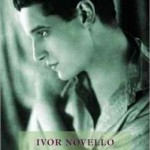 Southampton’s Dr Michael Williams has been working on film stardom, and its relationship to the myth and iconography of ancient Greece and Rome for over fifteen years. Sexuality has a consistent theme of his ongoing research and publications, which includes work on gay stars and directors, as well as sexuality in the heritage film. Read more…
Southampton’s Dr Michael Williams has been working on film stardom, and its relationship to the myth and iconography of ancient Greece and Rome for over fifteen years. Sexuality has a consistent theme of his ongoing research and publications, which includes work on gay stars and directors, as well as sexuality in the heritage film. Read more…
Geographies of carework in contemporary England: the domestic lives of LGBT couples
August 12, 2013
by Laurence Georgin
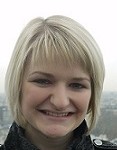 Traditionally, unwaged carework has been thought of as a female activity that belongs within the spaces of the family home. Social research into unwaged carework has tended to focus on gendered divisions of labour within heterosexual couples. Carla Barrett’s project considers unwaged carework in contemporary England, with a focus on the experiences of cohabiting LGBT couples.
Traditionally, unwaged carework has been thought of as a female activity that belongs within the spaces of the family home. Social research into unwaged carework has tended to focus on gendered divisions of labour within heterosexual couples. Carla Barrett’s project considers unwaged carework in contemporary England, with a focus on the experiences of cohabiting LGBT couples.
